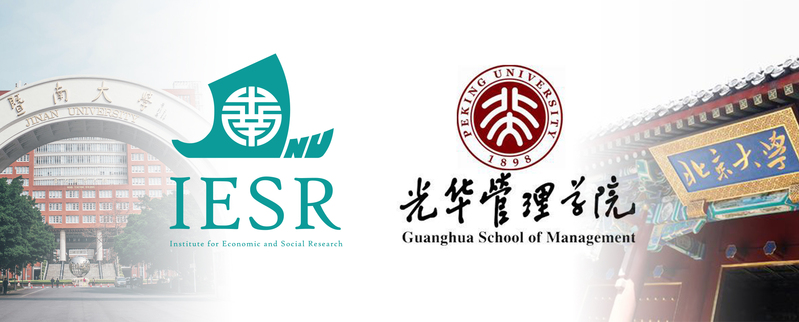Jinan University Institute for Economic and Social Research, in collaboration with Peking University Guanghua Management School, will jointly host a series of virtual workshops to discuss emerging research on various topics in urban economics and real estate economics. To present at a forthcoming workshop, please submit your research using this LINK.
https://enterprise-sdc.jnu.edu.cn/#/paper/submission
Submissions will be reviewed on a rolling basis and selected papers for the Thursday workshop will be announced by Monday.

Title: Measuring the benefits of ridesharing services to urban travelers: The case of the San Fransisco Bay Area
Speaker:Jia Yan, Washington State University
Time:September 18th 2020, 10:00-11:30

About the speaker
Jia Yan is a Professor of Economics at Washington State University. He received his Ph.D. in Economics from University of California at Irvine. Before joining Washington State University in 2007, he taught in Faculty of Business of the Hong Kong Polytechnic University.
Yan's research covers Transportation Economics, Applied Microeconomics, and Applied Econometrics. He has published his papers in such journal as Brookings-Wharton Papers on Urban Affairs, Econometrica, Journal of Urban Economics, and Transportation Research Record. His Ph.D. dissertation won the dissertation award of the Transport and Public Utility Group of the American Economic Association in 2003. He also won the research excellence award of the Faculty of Business of the Hong Kong Polytechnic University in 2006.
Abstract
We measure the benefits of ridesharing services to travelers in the San Francisco Bay Area by estimating a mixed-logit model of mode choice. We include Uber as a representative ridesharing service and we quantify the welfare gain that it provides to travelers by estimating the difference in total benefits with and without its service. Consumers gain roughly $1 billion annually from Uber’s non-fare attributes, which they value but taxis have not provided. Annual benefits to travelers in major U.S. cities are likely to amount to several billions of dollars. Regulations that limit the expansion of ridesharing services are not justified and are likely to reduce travelers’ welfare without addressing the problems of the modes that they seek to protect.
Please scand the code below to register for the workshop.



